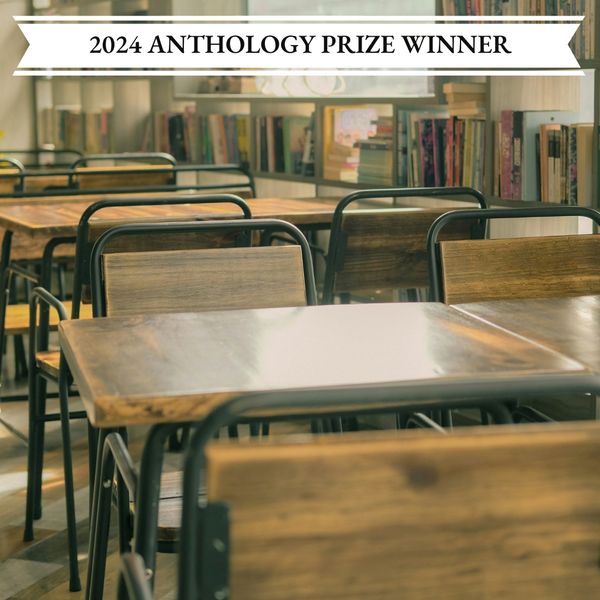When the Children came back, they came back different. Dante had an arm that wasn’t his attached at the shoulder. You could tell because of how long it was, much longer than the other, and the fact that it was on backward. Rachel, who always talked so much before, couldn’t talk at all except to let out a little screaming laugh when you bumped into her, and Maggie, well, some sort of animal must have got at her because her face had chunks missing.
We didn’t quite know what to do with them, although of course the parents were happy. New toys were purchased, old bedroom furniture repainted in bright, smiling colors. They brought the Children’s clothes out of storage and washed them, so the Children didn’t have to keep wearing the suits and dresses (now quite musty and moldy in places) that they were buried in.
In school, the Children sat silently, stiffly, facing forward at their desks, unblinking. This was true even of Jimmy, who used to be such a clown, throwing pencils at the ceiling and performing acrobatic dismounts from the top of his desk, but now he never laughed or spoke except to say please and thank you in a voice that creaked like a door hinge left unoiled for a century. Their homeroom teacher confided in me one afternoon when we ran into each other in the hallway that she was leaving them alone more and more often, sneaking into the lounge or the bathroom to sip from a small glass bottle while the Children stared obediently at the chalkboard. When she came back, they were always exactly where she left them.
“It’s the stillness,” she said, her hand on my arm as if it were a banister on a staircase she couldn’t quite trust. “The perfect stillness, I can’t stand it. There’s something still dead about them. They’re alive, but not really. They don’t breathe, I’ve noticed.”
I frowned at this; the teacher was a downer and always had been. Everybody knew it. I rather liked the Children in their new state, even the ones who hadn’t come out totally intact but instead leaked juices onto the carpet or belched out centipedes and beetles. There was something lovely about their wanness, coldness, stiffness, how you could look out on the schoolyard and see them playing the way they played now, no running or jumping or screaming, only sitting in neat pewed rows while one of them lay on the ground, eyes closed as if sleeping and at peace. Their positioning was always expressive, finely articulated in the tilt of heads and necks, the way a doll’s might be. Death had fashioned them all into actors.
It was nice to think sometimes that in a kinder world my own son might have been among them, his own wanness, coldness, stiffness endearing him to the other Children. I imagined them passing the small swaddle of his body back and forth, incorporating it into their scenes of mourning, a younger sibling, a prop and a wonder. I imagined wiping the soil from his skin and teaching him to play like them, quietly laying him to rest, not in another coffin, but in the crib that stood, unused, in my attic. Now play dead, I would say, and he would die, temporarily and incompletely, his bright green eyes watching me from under the lids. But my son was not like the other Children; my son had been born dead. There was no life to return to his body, and so he stayed below.
“Well, it’s not their fault,” I sniffed. “We asked them to come back. And they’re a bit too young for labels.” This was true, although none of them would ever grow any older. Before she could respond, I headed back to the lounge, because I didn’t want to hear it. What right did she have to complain about them, anyway? Certainly, our jobs had become easier. The Children were, if nothing else, well-behaved, as sweet as any mother’s dream.

